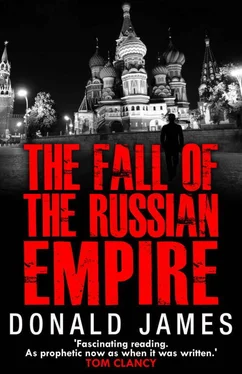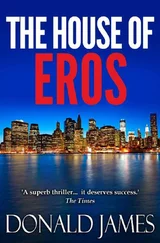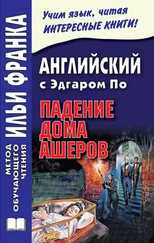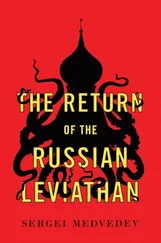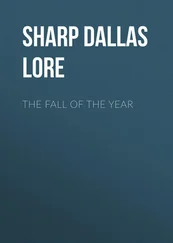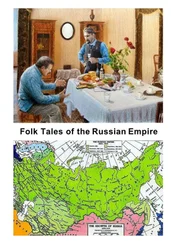In others of the new districts, too, the smoke pall which hung over the center of the city, the rolling sound of heavy gunfire and the virtual absence of militia forces began to infect the populace. Urban peasants that many of them still were, they began to march on Party offices to drag out filing cases and hack them open and burn their contents. Like the peasantry of the French Revolution they had an atavistic dread of the contractual power of the written word.
* * *
By now the ferment in the Soviet Union was matched by a ferment in the West. To accounts of the international crises of the Soviet Union in Transylvania and the Chinese border were added press stories of rioting around the Moscow main stations and the towns of the north. Reports now flowing in from the capitals of the Central Asian and Transcaucasian autonomous republics described massive demonstrations to welcome home returning members of the Penal Brigades. In some cases unconfirmed reports from the southern autonomous republics spoke of fighting breaking out between Russian regular Army units and formations of the National Divisions.
Great shuddering shocks were passing through the Soviet Union. The world looked on in trepidation. There were even rumors that Semyon Kuba had been arrested by the Army.
Then on the morning of December 21st, in a special appeal to the United Nations, Mikoyan’s Armenia declared its independence. Former First Secretary Mikoyan announced that he had agreed to a request to form a provisional government.
Within three hours a similar announcement was made from Tbilisi, the capital of the Georgian S.S.R. During the day, Azerbaijan and all four Central Asian Republics east of the Caspian followed suit. Only Kazakhstan, with its nearly fifty percent Russian population and its huge common border with the Russian Federal Republic, remained silent.
The Ukrainian delegate to the United Nations in his first act independent of the Soviet Union called for an emergency session. From governments throughout the world came floods of condemnation or approval. Cuban and Vietnamese radio stations ran hours of confused abuse of the declarations of independence. Chile recognized all new states immediately, as did much of South America. The United States consulted with its European allies and announced that no decisions had been taken in view of the uncertainties in the southern autonomous republics of the Soviet Union. The very use of the old title implied a cautious refusal to recognize the new Transcaucasian and Central Asian Federations formed within nine hours of Mikoyan’s first announcement.
In the late afternoon Bubo’s mounted units fell upon the northern suburbs of Moscow with the fury of the Tatar horde. They had no plan, no object but to loot and pillage and destroy. Throughout the afternoon around the Kazan Station and across the Sardovoye Koltso clattering hooves pursued screaming citizens. Men were torn from official buildings and shot in lines on the sidewalk; vehicles were burned; no one in uniform escaped the noose hanging from a lamp-bracket or a street sign.
Beyond revenge, Bubo saw a massive act of provocation, an invitation to the workers of Moscow to rise against his own Huns and against the system which had first created them and then failed to protect Moscow from their vengeance.
His hatred was no longer containable. It was a hatred of the Soviets, of the Russians and of all those who had remained silent while the prison trains rattled through their lives, and, once safely out of sight, began again to excuse the failings and praise the achievements of a system which had brought unequaled misery to mankind.
All afternoon he fought, urged his horsemen on. Joined by great mobs of unarmed penals they burned this northeast corner of the hated city into an inferno of collapsing buildings.
Only toward the evening was their fury spent and then, in small groups of six or seven mounted men, they were themselves hunted down by militia units in armored patrol cars. Bubo, the tailor from Bratsk, died trapped in an alleyway, his horse bucking wildly and squealing in pain as the militia bullets ricocheted off the narrow walls. A Tatar death.
* * *
From the back of the wood truck Zoya, Anton and Laryssa could see the burning city receding in the distance.
Since dawn they had fought and punched their way through panicked crowds of refugees.
* * *
When I had time to draw breath, when I had time to look around me at the burning buildings and the fleeing people, at the frightened, white-faced militiamen and the shells exploding in the streets behind us, I found myself crying with strange exultation. At one moment I recognized Razina Street where I had stood, clasping my pathetic percussion grenade on the morning of Romanovsky’s funeral. When I looked up now and saw that the twenty stories of the Rossiya Hotel were on fire above my head I wanted to go into Red Square and stand in the middle of a blazing Kremlin and gloat. I had not, you will see, after the months in Panaka, escaped my own share of madness.
Before midmorning Anton had found an abandoned car with a few centimeters of gasoline still in the tank. It had not taken us far, but driving straight down the Ordynka Boulevard we seemed to bypass the worst of the fighting. By afternoon we were out of the city. There was a lot of luck involved.
After the gasoline ran out we walked. Or rather stumbled in the thick snow on the uncleared highway south of Pavelets Station trying to wave down a passing truck. We never discovered what our crazy woodcutter was doing in his lone ancient truck plowing through the snow toward Podolsk, but then we didn’t ask. All that was important was that he stopped and let us climb on the back.
South of Tula things seemed more normal. The snowplows had been out and there was more traffic on the road. Without too much difficulty we got another lift taking us almost 120 miles south to Orel. There, on the Moscow Road, just outside the city, the driver dropped us off at a gasoline point.
It was a fairly new concrete structure built, we heard later, for the 1980 Olympic Games. It had a shabby new hotel attached to it and Anton left with one of Laryssa’s silver pieces to see if he could buy us food.
I suppose it was a few minutes later that Laryssa and I heard the raised voices in the filling-station office. We could see the outline of two men and another sitting behind a desk. But what amused us most I suppose was the extraordinary inflections of the two men’s voices. They weren’t so much rising in anger as high-pitched in sheer fury.
I think Laryssa laughed for the first time that day. “Golden boys,” she said.
The problem, as we had no difficulty in overhearing, was their Zhiguli-Fiat, which we now saw was standing in a repair bay beside the pumps. From their exaggerated protests they might have been waiting years for the repair (whatever it was) to be completed.
Then suddenly within the office voices dropped. Perhaps you have to have grown up as a Soviet citizen to know by instinct that money was changing hands.
The two men came out of the office a few minutes later. They were both in their fifties, both exquisitely dressed with graying wings of hair brushed back from their temples. Laryssa immediately put on a remarkable performance. She glanced, apparently casually at the two men, then recoiled in affected surprise.
The two men looked at her in bewilderment.
“Leningrad,” she said. “The Saint-Tropez Club.”
They looked at each other in alarm. How were they to know that Laryssa knew every illicit drinking club, straight or homosexual, in Leningrad. And there was nothing straight, as she told me afterward, about the Saint-Tropez Club.
Читать дальше
